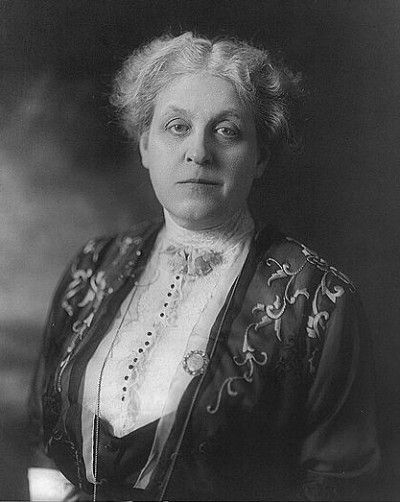Fake petition causes strong reaction for female voters

1920 — Carrie Chapman Catt founds the League of Women’s Voters and runs for president for the Georgist Commonwealth Land Party.
March 10, 2015
Students at Iowa State signed a petition to end women’s suffrage because of the unfamiliarity with the word suffrage on International Women’s Day.
“It seems like every person in the campus should have had a history class in middle school or high school that should have studied women’s suffrage,” said Dianne Bystrom, director of the Carrie Chapman Catt Center for Women and Politics.
Suffrage isn’t a term students use regularly, and the students signed the petition thinking they were helping women, Bystrom said.
Jake Dagel, the Iowa field coordinator for Turning Point USA, which is a non-profit organization created to educate students about the importance of understanding government workings, got two full pages of signatures to end women’s suffrage before a student called him on it, which is available to watch on Dagel’s video.
Dagel’s was to promote equal rights for women when he asked students to sign it. If they didn’t know what suffrage meant, they probably assumed the petition was in women’s best interest, Bystrom said.
When Dagel asked students to sign the petition, he asked if they thought women should have equal rights. He then promoted International Women’s Day, which some students said they thought of it as a trick to coercing students into thinking the petition was in favor of equal rights.
Before people sign something, they should have prior knowledge on the subject before they fully commit to it, said Evan Abramsky, treasurer of the ISU College of Democrats.
“People need to be more careful when they sign things and do research about the subject,” Abramsky said.
The term suffrage was used frequently 100 years ago in demanding voting rights for women, but now people don’t hear the word often enough, Abramsky said.
At the Carrie Chapman Catt Center for Women and Politics, workers are constantly using the word suffrage and explaining what it means, Bystrom said. They send out post cards and biographies about the Catt Center with the word suffrage in it, trying to advocate women’s rights, she said.
The Carrie Chapman Catt Center was founded in 1992 to help advocate and interest people with the political process, according to the Carrie Chapman Catt Center online. The center is named after ISU alumna Carrie Chapman Catt, who was a leader in the women’s suffrage movement and an advocate for women around the world.
“We do our part, but despite every effort to do that, we can’t reach every student,” Bystrom said.
Iowa State offers political sciences classes and women’s studies classes for students to enroll in, to learn more about women’s history, Abramsky said. College students should be better educated about women’s suffrage from high school history classes, he said.
Catherine Krahling, a student at ISU who calls herself a feminist at heart, said students should have studied equal rights movements from the past and how they have developed today, so the movements won’t repeat themselves.
People have become complacent about change and moving forward for women, Krahling said. Women are still underrepresented in leadership positions in all forms, she said.
“We’ve come a long ways, but not quite far enough,” Krahling said.
















